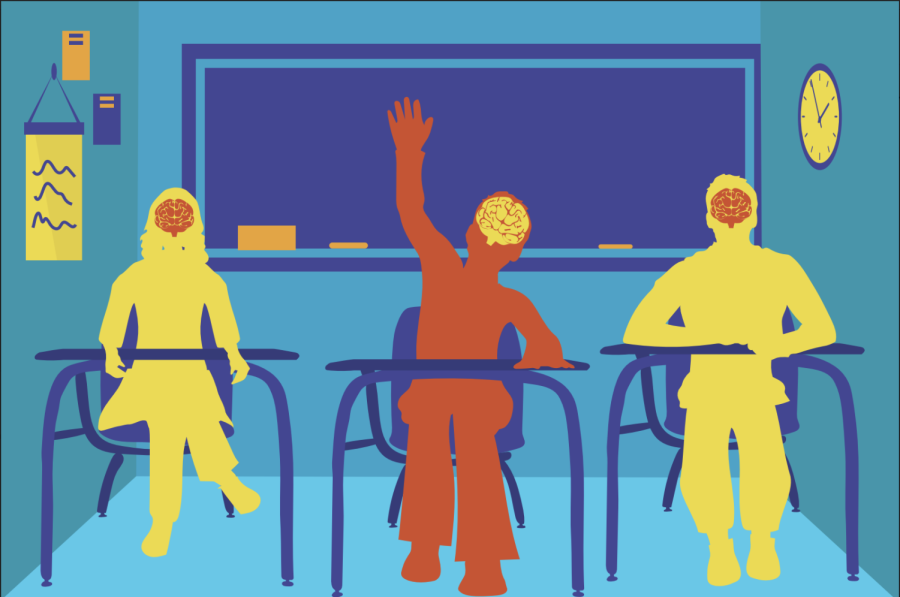Staff Editorial: A need for normalization
Stigmas surrounding neurodivergence can impact people’s lives and can be solved with acceptance and solidarity.
April 24, 2022
Picture yourself going to school. It’s a normal day; you walk to your classes, talk to a group of friends, do your assignments, and overall have a pretty manageable day. Most people can handle these seven hours of school each day, but for some, this can be a struggle.
Upon googling the definition for “neurodivergent’’ the sentence “a type of brain that is often considered as different from what is usual,” pops up. This definition can be misleading, and the word “different” can be hurtful. Nobody wants to be seen as different, whether they have a disorder or not. People can work against stereotypes by describing their brain as different or even unique, instead of them as a person.
Society tends to make neurodivergent people feel unaccepted and unwelcome, specifically when they reach out for help. It is expected that everyone must fit within the neurotypical norm, despite this being far from the reality we live in. According to Text Help, One in seven people have a neurodivergent condition, more common than some think.
Most people experience feeling “different” at some point in their life. But with autism, that feeling only increases throughout life. According to Inclusive Cinema, at least one in three autistic adults experience severe mental health difficulties due to a lack of support. In fact, 34% of children on the autism spectrum say that the worst thing about being at school is being picked on.
Neurodivergence includes a broad spectrum of disorders, and someone could have multiple. These disorders affect neurodivergent people daily, and even with medication, those effects don’t go away.
Many neurodivergent disorders have stigmas surrounding them. One such example is that people with autism are not as smart as someone who is not autistic. This belief is unfortunately common despite the fact that neurodivergent people offer many skills and can have the same amount of intelligence as someone without a neurological disorder. According to Esquire, dyslexic people have above-average reasoning and well-above-average visual thinking ability.
Even as the world moves forward, the stigma still stands strong. Labels, stigmas, and stereotypes have unfortunately become normal for categorizing people who are neurodivergent. People can forget that neurodivergent people’s experiences may be unique from others. Our society needs improvement in order to stand with those who are neurodivergent and fight the inclusion barrier. Think about how you would feel if you were neurodivergent. Starting there will change your perspective of what your words and beliefs can do, and will start to create a more accepting world.












